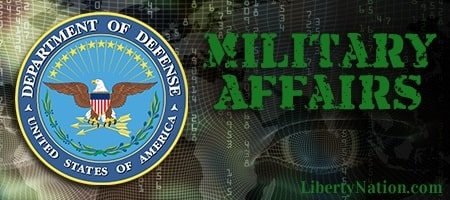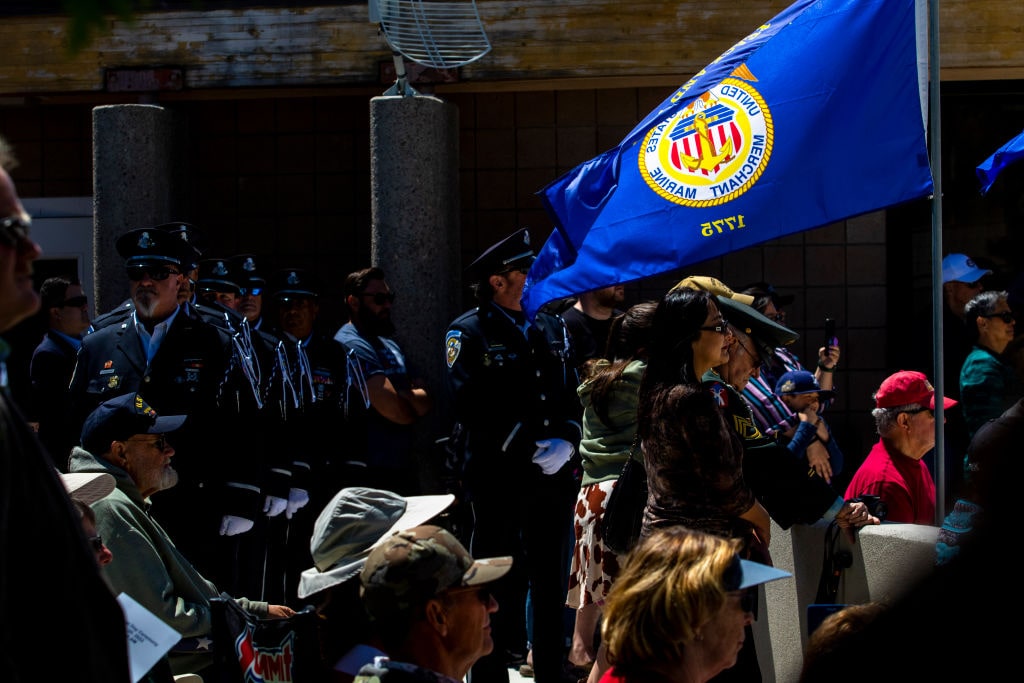During the Memorial Day celebrations of those who gave their all, one service is often overlooked. Not intentionally, but because their service to our nation’s war effort is often taken for granted. Parades and flag-strewn memorial cemeteries abound for Memorial Day remembrances. Most people think of doughboys slogging it out in muddy trenches. For others, there were horrific fights for the beaches of Normandy and the island battles in the Pacific.
Remembering the Merchant Marine on Memorial Day
On one occasion, according to a National WW II Museum article, the stalwart entertainer and face of USO shows wherever Americans were in combat, Bob Hope, asked his radio audience during a Christmas program, “Did you ever hear of the Z-Men? Sounds like a gag, doesn’t it? Well, it isn’t.” Hope provided the answer: “Z-Men are the guys without whom General ‘Ike’s’ army and Admiral Nimitz’s navy couldn’t live…Z-Men are the men of the Merchant Marine.”
 The “Z-Men” got the moniker because the merchant seamen identification card numbers started with the letter Z, hence Z-Men. Each merchantman was given a card, like a pilot’s license, listing the skills rating and certifications. Each member of the US Merchant Marine carried one, but the Z-Card is being phased out in favor of a passport-size document referred to as Merchant Mariner Credentials. However, during World War II, commercial seamen and officers were all Z-Men.
The “Z-Men” got the moniker because the merchant seamen identification card numbers started with the letter Z, hence Z-Men. Each merchantman was given a card, like a pilot’s license, listing the skills rating and certifications. Each member of the US Merchant Marine carried one, but the Z-Card is being phased out in favor of a passport-size document referred to as Merchant Mariner Credentials. However, during World War II, commercial seamen and officers were all Z-Men.
General Douglas McArthur and General Dwight Eisenhower described the exploits of the Merchant Marine as crucial to victory in the Pacific and Europe. “[W]hen final victory is ours there is no organization that will share its credit more deservedly than the Merchant Marine. Their contribution to the final victory will be long remembered,” Eisenhower proclaimed, according to the National WW II Museum’s account. As proof, the historical record is replete with courageous exploits of the Merchant Marine delivering vital wartime supplies and fuel.
US merchant vessels were prey for German and Japanese submarines and torpedo bombers. Life aboard a cargo ship carrying war provisions was hazardous, but merchant seamen were volunteers and up to the job. As Smithsonian Magazine explained regarding the experience of being hit by an enemy torpedo, “Even two seconds could mean the difference between life and death for any member of the crew. Running in the wrong direction might cut a sailor off from all means of escape. Jumping overboard at the wrong spot or at the wrong instant might easily cost a life.” Even if a sailor survived the concussion and flying debris from a torpedo strike, it “often meant running a gauntlet of dangers, including fire, explosions, icy water, sharks, flaming oil slicks, and long odysseys in open lifeboats.”
As a percentage of their total number, the US Merchant Marine sacrifice in lives was more than any other military service in World War II. There were 9,521 merchant seamen lost in the Second World War. That number represents 4% of the nearly 243,000 patriots serving in the US Merchant Marine at the time. Additionally, 600 merchant marine sailors were taken as prisoners of war after surviving an enemy attack.
In the months leading up to the beginning of World War II, merchant marine cargo vessels and tankers transported critically needed cargo and fuel to England, Russia, China, countries of the British Commonwealth, the Free French, and other allies. These ships initially made the journey alone or in small convoys and were easy pickings for submarines and enemy torpedo bombers. After December 7, 1941, US Navy destroyers provided convoy escorts for as many as 200 or more merchant vessels. But having the security of a destroyer escort was not always a sure thing.
 One merchant convoy mission identified as Convoy PQ-17 from Hvalfjörður, Iceland to Archangelsk, Russia, in June 1942 was the first Anglo-American naval operation, as the historical journal World War 2 History Short Stories tells the saga. PQ-17 was shadowed by the German submarine U-456 from the time it left Iceland. During the voyage, roughly a week after leaving Hvalfjörður, the convoy was attacked numerous times by German Heinkel HE 115 torpedo bombers, sinking two US Liberty ships. However, while the convoy attempted to evade or fight off German aircraft, faulty intelligence led the British Admiralty to order the convoy destroyer escorts to withdraw and engage what was believed to be the German battleship Tirpitz. The intelligence reports said the Tirpitz had left Norway to intercept PQ-17. The escorts complied, leaving the convoy to break up and go it alone to the designated Russian ports.
One merchant convoy mission identified as Convoy PQ-17 from Hvalfjörður, Iceland to Archangelsk, Russia, in June 1942 was the first Anglo-American naval operation, as the historical journal World War 2 History Short Stories tells the saga. PQ-17 was shadowed by the German submarine U-456 from the time it left Iceland. During the voyage, roughly a week after leaving Hvalfjörður, the convoy was attacked numerous times by German Heinkel HE 115 torpedo bombers, sinking two US Liberty ships. However, while the convoy attempted to evade or fight off German aircraft, faulty intelligence led the British Admiralty to order the convoy destroyer escorts to withdraw and engage what was believed to be the German battleship Tirpitz. The intelligence reports said the Tirpitz had left Norway to intercept PQ-17. The escorts complied, leaving the convoy to break up and go it alone to the designated Russian ports.
The Germans, watching what was happening, pounced. It was summer in the Arctic, and the convoy could not take advantage of the darkness of night. Each ship in the convoy was an easily seen silhouette. World War 2 History Short Stories explained:
“Of the 35 merchant ships that left Iceland, only 11 would eventually reach a port in Russia. One hundred and fifty-three merchant mariners were lost. In addition to men and ships, it was reported that war materiel, equipment, and supplies lost included 200 aircraft, 3,300 trucks, 435 tanks, and other war supplies that could equip 50,000 men.”
The travail of the Convoy PQ-17 was one story among hundreds that involved the courageous merchant seaman who risked their lives to deliver the warfighting materials to US and Allied armed forces during World War II. As it turned out, the Tirpitz, upon hearing from German communications that the escorts had left the convoy, returned to its port in Norway. Such were the vagaries and hazards of US Merchant Marine duty.
Z-Men Went on to Hollywood Stardom
Among the merchant seamen who braved those dangers were four who went on to television and movie stardom after the war. James Garner (Maverick), Carol O’Connor (All in the Family), Peter Falk (Columbo), and Jack Lord (Hawaii Five-O) were all World War II merchant mariners.
This Memorial Day, remember the US Merchant Marine sailors. They are still on call to move vital military cargo when our nation needs them. Today, these valuable merchant seamen and commercial ships are available to the Military Sealift Command and ready for any contingency. The Z-Men’s legacy lives on.
The views expressed are those of the author and not of any other affiliate.




